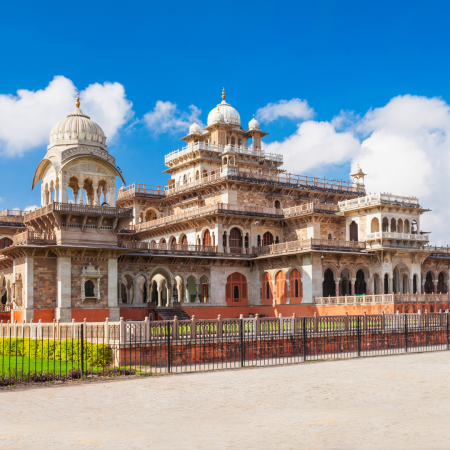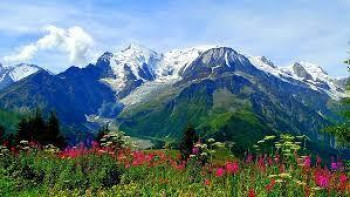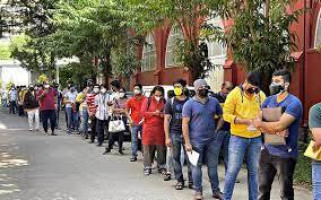
Novel muses for Indian museums: Unique museums to check out in India
Date : 20th May, 2025
On International Museum Day, discover how Indian museums are transforming exhibits into immersive, unforgettable experiences
Located in Mahabalipuram, this is a unique attraction spot, as it blends oceanic beauty with cultural heritage. Displaying an impressive global collection of seashells, it highlights their artistic, historical and cultural significance. The museum also highlights Mahabalipuram’s maritime history and the role of sea trade in connecting ancient India to other continents. Its informative displays are a treat for students, enthusiasts and curious visitors alike.
2. Kite Museum, Ahmedabad
Located in Ahmedabad, this museum was founded with painter Bhanu Shah’s kite donation. Housed in Sanskar Kendra, designed by architect Le Corbusier in 1954, it showcases diverse kites, papers, illustrations and paintings. The museum traces the history of kites from 200 BC, when Hiuen Tsang used one to evade an army, all the way to 1752, when Benjamin Franklin proved lightning was a form of electricity, culminating in the Wright brothers’ 1902 invention that led to modern aviation.
3. Arna Jharna Museum, Rajasthan
This museum opened in 2003, inviting visitors to experience both the performative and material culture of the desert communities of Thar. Run by Rupayan Sansthan (Rajasthan Institute of Folklore), it sheds light on the fragile balance between ecology and human survival, revealing how urbanisation and changing farming patterns have impacted access to pastoral land. The Sansthan has also spotlighted marginalised groups like the Kalbelias, promoting their cultural heritage globally—leading to their inscription on the UNESCO Intangible Cultural Heritage List in 2010. It recently partnered with IIT Jodhpur to develop indigenous clay-based water filters.
4. Kannan Devan Tea Museum, Kerala
This unusual tea museum in Munnar takes visitors on an insightful journey into the history and cultivation of tea in the state. Established by Tata Tea in 2005, the KDHP Tea Museum showcases the evolution of tea production, dating back to the 19th century when British planters began establishing estates in the area. In addition to exhibits featuring antique machinery, photographs and memorabilia, the museum also hosts live tea-processing demonstrations, tea-tasting sessions, and guided tours of heritage bungalows and tea plantations.
5. Vechaar Museum, Gujarat
Set up in Ahmedabad in 1981, the Vechaar Cultural and Heritage Museum for Utensils offers a catalogue of utensils used across the country, with exhibits from Vishalla restaurant founder Surendra Patel’s personal collection. Over 4,000 Indian utensils (the oldest dating back 1,000 years), made of brass, silver, wood, terracotta, bronze and more, adorn the walls, floors and shelves of the building. Designed by Surendra, with the support of anthropologist Jyotindra Jain, the museum preserves integral parts of Indian cooking, including fire kilns.
6. Mayoung Central Museum, Assam
Mayong, a village in Guwahati located by the Brahmaputra, is known as the ‘Land of the Occult’ — famed for sorcery and tales of disappearances, transformations and ghost-taming. The Mayoung Central Museum and Emporium is home to different ancient witchcraft manuscripts and swords historically used for sacrificial purposes. It preserves the relics of a once-feared craft that is fading away in modern life.
7. Museum of Alcohol, Goa
Located in Candolim, North Goa, this unique museum, created by antique collector Nandan Kudchadkar, showcases Goa’s rich heritage, focusing on the history of alcohol production and consumption. Spanning 13,000 sq ft and 5 rooms, the displays include ancient glass vats, bottles and distilling tools from India and the world at large. Visitors can also taste aged feni, a Goan heritage spirit from 1946, and join other tasting and pairing sessions.
8. Heritage Transport Museum, Haryana
India’s first comprehensive transport museum opened its doors in 2013. Founded by Tarun Thakral and managed by the non-profit Heritage Transportation Trust, it showcases over 2,500 items tracing India’s transportation evolution. Spread across 4 air-conditioned floors in a 3-acre complex in Gurgaon, the museum covers railways, aviation, maritime, rural vehicles, toys and art. Through interactive exhibits, a library, an auditorium and a souvenir shop, the museum offers an engaging and inclusive visitor experience.


